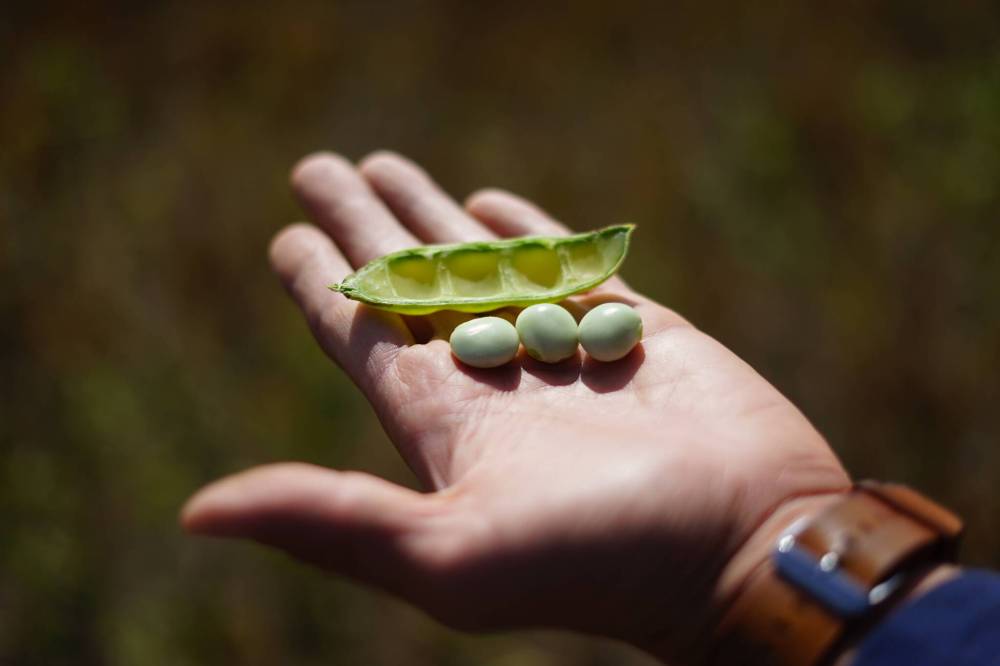New year a good time to go plant-based
Advertisement
Read this article for free:
or
Already have an account? Log in here »
To continue reading, please subscribe:
Monthly Digital Subscription
$1 per week for 24 weeks*
- Enjoy unlimited reading on winnipegfreepress.com
- Read the E-Edition, our digital replica newspaper
- Access News Break, our award-winning app
- Play interactive puzzles
*Billed as $4.00 plus GST every four weeks. After 24 weeks, price increases to the regular rate of $19.00 plus GST every four weeks. Offer available to new and qualified returning subscribers only. Cancel any time.
Monthly Digital Subscription
$4.75/week*
- Enjoy unlimited reading on winnipegfreepress.com
- Read the E-Edition, our digital replica newspaper
- Access News Break, our award-winning app
- Play interactive puzzles
*Billed as $19 plus GST every four weeks. Cancel any time.
To continue reading, please subscribe:
Add Free Press access to your Brandon Sun subscription for only an additional
$1 for the first 4 weeks*
*Your next subscription payment will increase by $1.00 and you will be charged $16.99 plus GST for four weeks. After four weeks, your payment will increase to $23.99 plus GST every four weeks.
Read unlimited articles for free today:
or
Already have an account? Log in here »
Hey there, time traveller!
This article was published 15/12/2023 (669 days ago), so information in it may no longer be current.
The start of a new year is for many of us a time to get back on track after all the holiday fun and consumption.
Maybe we’ll strive to eat better and take on a new wellness routine. Maybe we’ll try to save money and get back on a budget. And maybe we will resolve to go a little easier on the planet by cutting our eco-footprint. It is for all these reasons that initiatives like Veganuary continue to be popular at this time of year. Forgoing harmful animal-products, replacing them with plant-based proteins and alternatives, hits so many resolution points. And it’s never been easier, nor more necessary, to give plant-based a try.
Veganuary has been around since 2014. Created by a U.K. non-profit by the same name, Veganuary is a challenge to go vegan (meaning consume no animal products) for the month of January. The challenge has seen a steady rise in participants each year, with the organization recording over 700,000 last year, not including the many who did not officially sign up on the website. The top reason surveyed participants noted for taking on the challenge was to help animals.

In Canada, we slaughtered over 841 million land animals in 2022. And while our assembly line-style slaughterhouses are overseen by the Canadian Food Inspection Agency, farms are not. In fact, there are no laws governing the everyday treatment of animals on farms in Canada. This allows for unchecked cruelty (especially since the passing of ag-gag laws in some provinces), and disturbing standard practices such as chick shredding, piglet thumping, gestation crating, and ripping newborn calves away from their mothers. Spending the month of January (and beyond) opting out of supporting such a business sound like a pretty good idea.
Additionally, global animal agriculture is a top contributor to climate change, accounting for at least 14.5 per cent of global greenhouse gas emissions. The industry is also largely responsible for mass deforestation, biodiversity loss, freshwater pollution, ocean degradation and land use.
Alternatively, according to a University of Oxford study, “people who follow a plant-based diet account for 75 per cent less in greenhouse gas emissions than those who eat more than 3.5 ounces of meat a day, and a vegan diet also results in significantly less harm to land, water and biodiversity,” explains Cara Buckley for the New York Times.
Thankfully, healthy plant-based protein sources are abundant in Canada. We are the top producer of dried peas and lentils in the world! And meat-mimicking plant-based alternatives such as Beyond Meat, Impossible Foods and Canadian-made Light Life, can be found in stores and restaurants all across the country.
Admittedly, the plant-based meat alternatives market has seen some ups and downs since the big brands hit the scene about five years ago. Arriving with a major market splash, then experiencing a boom during the pandemic, demand for the products has since seen some lows over the last year as inflation hit and the meat industry fought back. Interestingly, recent backlash against plant-based meat alternatives over concerns the products are “ultra processed” and unhealthy, has been linked to targeted and manipulative marketing from the meat industry.
Of course to imitate meat, peas and beans do have to undergo some processing (though some would argue that the processing animals must undergo to become meat is far worse). But ultimately, many plant-based meat alternatives are lower in fat, higher in protein and free of cholesterol, compared to animal-based meats.
Thankfully, plant-based meats aren’t going anywhere. Industry experts interviewed by The Canadian Press earlier this month believe “there’s still plenty of growth in the future” of the market. And beyond Beyond Meat, there are also the more tradition plant proteins such as tofu, beans and lentils that have and will likely continue to stand the test of time. This is especially true as plant proteins remain relatively more affordable compared to heavily subsidized meat, during this period of inflation.
If you are planning to cut back on meat due to rising costs, you are among 47 per cent of Canadians planning the to do same, according to a poll conducted by Ipsos earlier this year. And if you are already cutting back, consider going all the way. Try the Veganuary challenge: cut the demand for more animals to be slaughtered, cut your eco-impact, cut your risk of heart disease, and cut your grocery budget.
That’s four New Years resolutions in one.
Jessica Scott-Reid is a Winnipeg freelance journalist and animal advocate.

